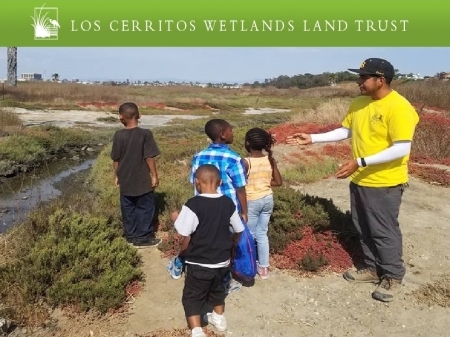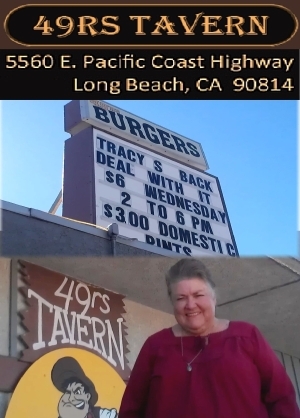On May 11, 2017, the City of Long Beach issued the following statement regarding its use of Roundup:
On May 23, 2017, 5th district constituent, Raman Vasishth, tried to use a tangential agenda item (renewing contracts for landscaping services) to comment (on behalf of two other individuals who had to leave the Council meeting early) that the cities of Huntington Beach and Irvine had banned Roundup and argued that Long Beach should do likewise. Mr. Vasishth was partially correct; the Irvine City Council did vote in 2016 to stop using Roundup but the Huntington Beach City Council (in May 2017) stopped short of a ban and opted instead to conduct a three month test of organic pesticides in a portion of Huntington Beach's Central Park. .
Councilwoman Mungo used the opportunity to publicly chide her constituent, avoided mentioning what the City of Irvine did, and recited what amounted to LB city management's stance:
Two months later on July 11, 2017, the Burbank City Council received a formally agendized, six page written report plus a PPT presentation from its city staff regarding that city's use of Roundup. We quote from it at length:
[City of Burbank memo, agendized at July 11, 2017 Council meeting]...At the April 25, 2017 City Council meeting, residents approached the City Council expressing concern with the City's use of Roundup. As a result, the City Council requested staff to return to the Council with a discussion of the City's use of this herbicide. It is hoped that this report will serve as an informative discussion of the reasons why the City uses Roundup as well as address the public's concern over the product.
The City of Burbank uses various herbicides to control weeds throughout the City's parks and public spaces. Recently some government agencies have been questioned about the use of Roundup, an herbicide that contains the chemical glyphosate that at least one study suggests may cause cancer. Glyphosate was introduced commercially by Monsanto in 1974 and is now used in more than 160 countries, with more than 1.4 billion pounds applied per year.
In mid-March, 2017, a California judge ordered the California Environmental Protection Agency (CalEPA) to place glyphosate on a list of potentially harmful chemicals. The list is in accordance with Proposition 65, a law enacted by California voters in 1986 that mandates notification and labeling of all products which the State of California has determined to potentially add to a person's cancer risk or may cause harm to unborn children or other reproductive harm.
It is important to note that the Proposition 65 list is not a list of banned chemicals. Instead, Proposition 65 requires clear and reasonable warnings for exposures to chemicals on the State's list under certain circumstances. It is important to remember that not everything on the Proposition 65 list is a problem and similarly just because it is not on the Prop 65 list does not make it safe. Table salt and sugar, for example, are not on the Proposition 65 list but causes problems in people with certain health issues. Some fatty foods can both cause cancer (and are listed on the Prop 65 list) but many are simply a problem for people with specific health issues. Similarly, some things listed by Proposition 65 are medicines, such as ACE inhibitors used to regulate high blood pressure.
The Proposition 65 list has grown to include approximately 1,000 chemicals to date. The list is extensive but includes many chemicals people come in contact with daily including, ethanol in alcoholic beverages, acrylamide (found in foods such as french fries and potato chips), Aloe Vera, aspirin, caffeic acid (NOT caffeine but still found in coffee, many herbs and spices, and sunflower seeds), cycasin (found in all types of sago palms-cycads), diesel and gasoline engine exhaust, marijuana smoke, oral contraceptives, tobacco smoke, gasoline, and wood dust.
Roundup is currently labeled for use in the United States thorough the EPA and the State of California through the California Department of Pesticide Regulation (DPR). There are three pesticide categories/ratings, "Caution," "Warning" and "Danger." "Caution" is the least toxic of the categories assigned to pesticides. "Warning" is the middle of the toxicity ratings and "Danger" is the most toxic. These ratings are based on several factors including toxicity and particular hazards. Roundup has a "Caution" label...
DISCUSSION
The Parks and Recreation Landscape Services Division uses Roundup for weed control in its park landscaping and around trees in order to prevent damaging the trees with mowers and string trimmers. Public Works Street Services Division uses Roundup for weed control in the alleys and streets and maintenance of the medians. From an aesthetic perspective, the proper application of Roundup is a big part of the reason why Burbank parks are well maintained and look beautiful. PW's use of Roundup aids in the sustainability of the City's streets and alleys. Weeds cause damage to the asphalt and concrete alleyways resulting in increased maintenance and requiring replacement sooner than if kept weed free. Many types of vermin use weeds to travel from place to place while being hidden from their predators allowing rats and such to increase in population. Moreover, weeds are considered a nuisance per City Code.
It is important to note that the City uses the same products containing glyphosate that Burbank residents can buy at any home improvement store and use on their own landscaping. Highly trained City staff applies herbicides in very small doses, well below the levels cited in the test that suggested glyphosate might cause cancer. Beginning in April and continuing in May, Public Works treats approximately 50 miles of alleys once a year. The single treatments result in approximately 120 gallons being used annually on alleys. Parks and Recreation uses approximately 20 gallons annually over approximately 125 acres of park landscape. Once or twice a year Parks staff use Roundup on the sports fields to burn lines and avoid treating the entire turf area. The majority of the Roundup Parks staff uses is in planter beds or close to trees to keep a turf-free area around the tree...
The City takes the health of its residents and employees very seriously and initiates appropriate action when it is believed there's a reasonable threat to their safety. With respect to our employees, the City's Management Services Risk Management and Safety Division oversees the comprehensive citywide environmental, health and safety management program, and staff also works closely with its labor groups to maintain a safe work environment. Employees are trained on the safe use of pesticides before they are allowed to mix or apply any pesticides. Additionally, state law requires that City staff follow stringent safety guidelines in the use of herbicides. This includes formal training and certification. Six staff members of the Parks and Recreation staff hold either DPR Qualified Applicator Certificate or License, and two members of the Public Works staff hold DPR Qualified Applicator Certificates. These licenses and certifications mean the employees have studied for and passed a test concerning the proper application of pesticides and the laws surrounding their use.
In addition to only using herbicides in small doses and staying away from streams, City staff does not apply herbicides during windy or rainy weather, or in close proximity to non-city workers. Herbicides typically dry in ten to sixty minutes, usually before City crews leave the area. If the area is not dry, they will wait until it does.
ANALYSIS
The City has been using Roundup since at least the late 1980's. Roundup has been known in the industry to be a safe and effective product, far safer and more effective than other materials available at that time or since. There are a couple of products which may be registered in California in the next five to ten years but they rely on the same or similar chemical pathways to work. Roundup interrupts a specific chemical pathway that is only present in plants. It is non-selective so it will kill any plant's green tissue it contacts, which is why it can be sprayed around a tree without killing the tree. Since Roundup kills the weed from the green tissue to the root rather than simply burning the leaves off, it can be used less often than other products which just burn the leaves off.
Products such as horticultural vinegar, plant oil extracts, and various other organic and chemical herbicides are available for weed control. It should be noted that horticultural vinegar is not labeled for use as a pesticide in the state of California and therefore it is illegal to use as a pesticide. Although these products control weeds, they are not systemic, meaning the product only kills the leaves it contacts from the surface. As an example, if half a weed is sprayed only that half of the weed will die. These products also work best on very small (seedling) weeds and are not effective on larger weeds or perennial weeds such as Bermuda grass. Larger weeds or perennial weeds are able to outgrow the damage caused by the chemical. Even small weeds may need repeated sprays in order to kill the weeds. This means that in order to have even marginal control in most of the parks, staff would need to spray every two weeks since there are weeds starting all the time. In alleys there would be limited effectiveness since the organic sprays only kill very small weeds. Weeds like Bermuda grass can handle being sprayed every other week for a year or more before exhausting the stored nutrients and dying. The City currently may spray Roundup in an area of a park once every three months. Should organic products be used, spraying every other week or more will be required and the result will still be marginal.
While staff clearly understands the public concern with the product, staff is not supportive of banning the product from use because the City's annual usage is low and is being used by trained professionals, with the majority of it being used in non-contact areas (medians, streets, landfill and alleys). However, knowing the legitimate public concern, staff has outlined a few options for the City Council to consider should they want to limit and/or ban the City's use of the product.
Since the concern is mostly related to public contact, the Council could consider allowing the use of Roundup on streets, alleys, medians and public parking lots. This will reduce the public's contact with the herbicide. The Council could also consider putting the burden of weed control on adjacent property owners. However the reality is that most property owners would likely use Roundup or a similar product.
Should it be Council's desire to ban the product's use altogether but keep the weeds maintained in a similar fashion as is done presently with Roundup, it will require additional staffing and funding to buy more expensive organic herbicides and apply them more frequently. In addition, manual weed removal will be required.
To get an understanding of the possible cost, Burbank has obtained one quote for weed control without the use of Roundup for the medians and Landfill only from the City's current contractor. The costs increased by $225,000 annually. Given that the sprayed areas of the parks, streets and alleys are about eight times the area of the medians, the cost would be approximately $2,000,000 per year if the product was banned from City use and if maintenance levels were expected to remain the same for both Departments. Based on usage, Public Works portion of that cost is about $1.66 million and Parks & Recreation is $333,000.
If the Council is okay with the level of weed control being less than what is done presently, staff can do the same number of herbicide applications using a non-Roundup product. Since none of these products kill larger weeds, it is likely most weeds would survive, grow and reproduce creating a larger problem in the future. Most of the products are more expensive than Roundup, some up to thirty times as expensive, so additional funds would be needed to purchase the allowed products. Also the larger weeds would need to be removed by hand and without additional staffing, there would be more visible weeds, lowering the quality of the outdoor spaces in the parks and throughout town.
The City could also consider hiring a contractor to spray weeds with an allowed product at appropriate intervals. However, costs would be similar to that of hand pulling at approximately $2,000,000 annually.
FISCAL IMPACT
There is no fiscal impact as the recommendation is to note and file this report. Should the Council consider banning or limiting the use of Roundup, the fiscal impact will vary and may be as much as $2,000,000.
CONCLUSION
Staff takes pride in the maintenance of City parks, alleys, streets and medians. Although staff recognizes the public concern about Roundup, the City's use is very limited and staff is properly trained to minimize any exposure to the general public. The City's use of the product is the most effective and efficient method in controlling weeds. This ensures that the community has high quality parks and well maintained streets and alleys at the lowest possible costs in both manpower and pesticide. Based on existing studies, the State of California nor the United States shows any intentions of banning or restricting Roundup's use. Consequently, staff does not believe banning the product's use by the City is warranted at this time. The EPA is currently conducting further studies on Roundup and should it be determined that this product is unsafe, the City will discontinue using it.
It is worth noting that three school districts have discontinued use of Roundup based on public request. The districts in Irvine, Glendale and the Burbank Unified School District (BUSD) have stopped using the pesticide. BUSD agreed to stop using Roundup earlier in the year, at the request of a locally organized group Non-Toxic Burbank. BUSD advised that the discontinuance would have little impact on their operations and maintenance costs due to the fact that they had a very limited number of places that required the use of any herbicides.
The only municipality that has restricted their use of Roundup is the City of Irvine. Following Council action in 2015 in response to a locally organized group, Non-Toxic Irvine, the city agreed to restrict their use and will only use as a last resort with challenging areas. Irvine contracts the majority of their landscape maintenance and have stated that the restriction has increased their costs. However, they are unsure of the increase Citywide because they conduct maintenance via landscape maintenance districts and have yet to complete a full re-bidding cycle in each area so the total increase citywide is unknown. Staff will continue to monitor their progress in this area to ascertain costs and possibly any best practices they may find while restricting the use of Roundup.
Should the City Council decide to limit or ban the use of Roundup from City operations, staff will monitor the situation and come back to the Council in six months to a year to share staff's experiences and the overall results of weed control without the use of Roundup.
Minutes of the Burbank City Council meeting indicate the Council "unanimously agreed to discontinue use of Roundup at all parks and the Chandler Bike Path."














